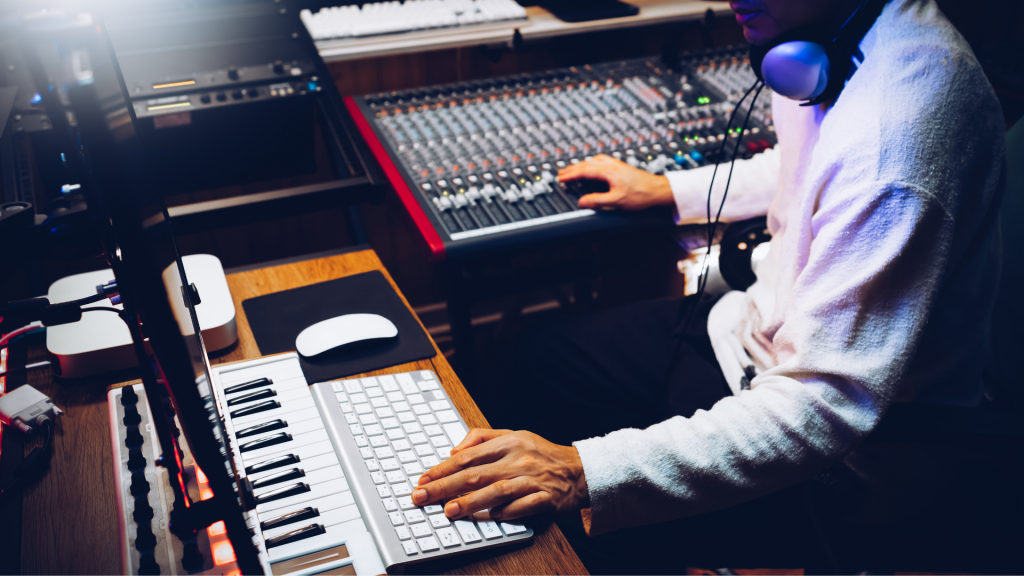 Performance Royalties are payments made to an artist or composer who has made a significant musical contribution in the creation of a particular recording. These payments are typically calculated on the basis of international standard unit rates, set by various organizations such as the International Confederation of Phonographic Industry (IFPI) and Broadcast Music, Inc. (BMI).
Performance Royalties are payments made to an artist or composer who has made a significant musical contribution in the creation of a particular recording. These payments are typically calculated on the basis of international standard unit rates, set by various organizations such as the International Confederation of Phonographic Industry (IFPI) and Broadcast Music, Inc. (BMI).
The royalty rate is calculated based on a percentage of certain sales revenue generated by a physical product or digital download sale. For example, if an album sells 1 million copies in its first week, then there is a 1% performance royalty payment that goes to the artist’s account.
Performance royalties can be quite lucrative for most artists and serve as independent income for musicians and composers.
What is a Live Performance?
Live performances for musicians are an essential part of the music industry. How a performer communicates with the audience is a key part of understanding how well they are performing.
Performing live has always been a difficult feat, and until recently, it seemed impossible to account for every variable. With technological advances in recent years, however, artists have found new ways to be more efficient and creative in their live performances.
Live performance experts like The Big Night Out Project have taken on the task of discovering what makes artists successful in their live performance — by studying musicians who have had successful concerts or tours. They also do research on how other musicians perform successfully and conduct surveys and interviews with other musicians about their experiences both onstage and offstage.
Why Should You Be Collecting Royalties on your music live performances?
The income of a musician is determined by live performances. By collecting royalties from your live performances, you can increase your income and boost your career.
Collecting royalties is defined as a percentage of the money that someone has made off your work. Royalties are given to people who have created intellectual property, including but not limited to books, music, movies, and art.
In order to have rights over your own copyright you have to show ownership by registering with the US Copyright Office and paying a filing fee. You can also register your work with an agency like the US Copyright Office or World Intellectual Property Organization (WIPO)
The benefits you can receive from collecting royalties include the ability to control how much money you make from each product sold and how much money you get for each download.
Collect Your Live Performance Royalties!
Don’t Pay to Play–Use These 3 Strategies Instead!
1. Create and market your own music content
As the market for music content has become increasingly saturated, it has also become more difficult to stand out from the crowd. Future musicians need to think creatively about ways they can create and market their own music content in order to succeed.
There are many tools available that can help musicians generate content on their own. Many of these tools have been specifically designed with artists or aspiring musicians in mind. Some of these tools include SoundCloud, YouTube, and Instagram’s new IGTV platform.
Content creation is limited to creating music videos and includes posting photos and sharing individual songs and live performances on social media platforms like Instagram, Facebook, Twitter, and YouTube.
2. Digitize your music performances and share them on social media networks like YouTube, Vimeo, Facebook, Instagram, and Twitter-
With the growth of social media networks, it has become easier and more convenient for people to share their performances on the internet. Digital platforms now allow artists to upload their music for free and share it with a wide audience.
3. Partner with a platform that collects royalties for content creators like Tune Core or CD Baby.
Tune Core and CD Baby are platforms that help artists monetize their content. Artists can upload their music and share it with the world on Tune Core or get paid when they sell on CD Baby.
Tune Core is an online music platform that offers three different types of subscriptions for musicians, all of which allow users to listen to tracks and share them with friends.
CD Baby is a digital distribution company that helps musicians distribute, market, promote, and sell their content online. Artists can also sign up for a free account on the site and get access to royalty payments through Amazon’s Mechanical Licensing (LAAS).

 With the increase in technological development, music has become a complex mixture of sounds that has taken a completely new form. While the digital era has created new terminologies, it also brought change within the industry.
With the increase in technological development, music has become a complex mixture of sounds that has taken a completely new form. While the digital era has created new terminologies, it also brought change within the industry.